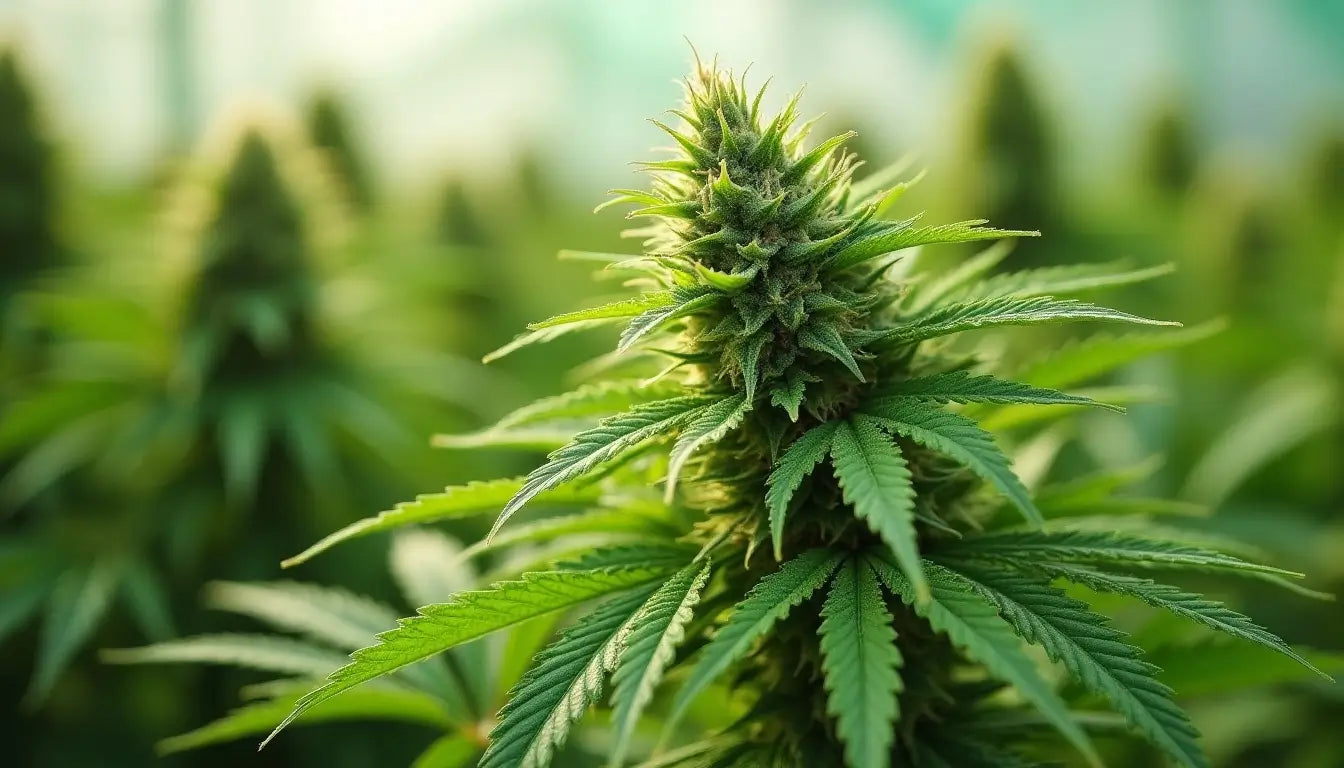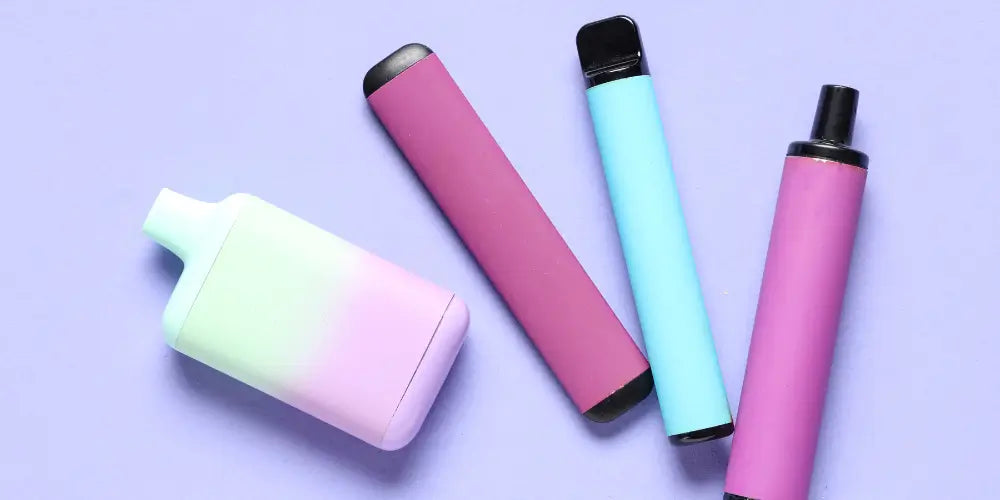Table of contents
Many people wonder when and how you can get a prescription for cannabis in Germany—and what you need to keep in mind. In general, doctors are allowed to prescribe cannabis if other treatments have not been effective enough and if the symptoms are severe or chronic. The application goes through your health insurance provider, which decides whether to cover the costs.
To make this work, you need to be well prepared. Doctors have to explain why cannabis makes sense medically, and you should be able to provide proof of your previous treatments. What matters most are complete records, clear documentation, and patience, since many applications are reviewed or require additional information at first.
When can you get a prescription for cannabis?
Your doctor always decides whether you can get a prescription for cannabis. There is no fixed list of illnesses that automatically qualify. Instead, your doctor checks whether other therapies have not been effective enough and whether cannabis could be a possible addition.
Usually, medical cannabis can be prescribed if
- you have a serious or chronic illness,
- other medications have not worked as hoped,
- it is expected that cannabis could help relieve your symptoms,
- and there are no medical reasons against it.
Common examples include chronic pain, muscle spasms in multiple sclerosis, loss of appetite in cancer patients, or certain neurological disorders.
You can also apply for cannabis if you have sleep disorders or anxiety disorders, but the decision is always made on a case-by-case basis.
Getting a prescription for cannabis is always an individual decision. Doctors have to document each case and explain in detail why cannabis could make sense medically.
Tips for your application
If you want to apply for a cannabis prescription, you should know that the process involves several steps and requires some patience. Many applications are not rejected because of the wrong diagnosis, but because documents are missing or explanations are unclear. If you prepare well, your chances of approval go up.
This is how the process usually works:
- Doctor consultation: Talk openly with your doctor about your symptoms and previous treatments. It's important that you mention all therapies you've already tried and how effective they were.
- Documentation: Doctors need to prove that other medications or measures haven't helped enough. So bring any available medical reports, medication lists, or therapy summaries with you.
- Prescription: If your doctor believes cannabis might be helpful, they will issue a special narcotics prescription. This allows the pharmacy to dispense cannabis.
- Application to the health insurance: The costs are not covered automatically. Your doctor will submit the application with you, which the health insurance company will review. They may request additional documents or explanations before making a decision.
A quick tip: Be patient and check in regularly if your application is delayed. Processing can take several weeks depending on the insurance company, especially if they have follow-up questions.
Tips for talking to your doctor
The conversation with your doctor is the most important part when it comes to getting a cannabis prescription. Many people aren't sure how to bring up the topic—and that's often where misunderstandings start. The goal isn't to convince your doctor, but to work together to see if cannabis could make sense in your situation.
Here are a few things that can help you during the conversation:
- Preparation makes it easier. Write down your symptoms beforehand, how long you've had them, and what you've already tried.
- Be honest about your experiences. If you've already tried other medications or therapies, be open about what worked and what didn't.
- Stay calm and objective. Some doctors are cautious when it comes to cannabis. That's not a judgment about you—often, they just lack experience with it.
- Don't be afraid to ask questions. Ask about effects, dosage, or possible side effects. This shows you're genuinely informed about the topic.
- Patience helps. Not every practice prescribes right away. Sometimes it takes several conversations or additional documents.
The more open and organized you are in the conversation, the more likely you'll be taken seriously—and that's the best foundation for your application to have a real chance.

Costs and reimbursement
Whether your health insurance covers the cost of prescription cannabis depends on your individual case. There is no automatic entitlement, even if your doctor writes a prescription. Each health insurance provider reviews the application individually, and this process can sometimes take a while.
Health insurance usually covers the costs if
- you have a serious or chronic illness,
- other treatments have not been effective enough,
- and your doctor provides a solid justification for treatment with cannabis.
If these conditions are met, your chances of approval are quite good. Still, some applications are rejected—often because documents are missing or the justification is too vague.
Tip: If you have statutory health insurance, it’s worth asking your provider in advance exactly which documents are required. If you have private insurance, the process is often a bit less bureaucratic, but you usually have to pay the costs upfront and submit them for reimbursement later.
If you want to be on the safe side, keep all medical reports, expert opinions, and therapy records together. This saves time if your insurance provider has follow-up questions.
Avoid Common Mistakes – How to Apply for Prescription Cannabis the Right Way
Many applications for prescription cannabis fail not because of the illness itself, but because of small mistakes.
Sometimes documents are missing, sometimes the justification is too general, or communication between the doctor’s office and the insurance provider breaks down.
A common mistake is giving up too quickly if there’s a follow-up question or something is unclear. Often, a supplementary letter or an additional expert opinion is enough to get your application approved after all.
It’s also important to make your medical history easy to follow. If you clearly document which treatments you’ve already tried, it helps your doctor justify the benefits of cannabis.
Timing can also matter. If you’re starting another treatment or your symptoms are changing, it might make sense to submit your application later so your documents are up to date.
In short: Attention to detail pays off. A well-prepared application shows you’re taking the issue seriously—and that significantly increases your chances of success.
Prescription Cannabis in 2025 – The Current Situation in Germany
Even in 2025, prescription cannabis remains a topic of interest for many people. Since the law changed in 2017, doctors have been allowed to prescribe medical cannabis if other treatments haven’t worked well enough. The process has become a bit clearer, but it’s still not easy.
In recent years, the attitude of many doctors has especially changed. What used to be a fringe topic is now increasingly part of everyday medical practice. There are more training opportunities, more practical experience, and a growing awareness that cannabis can be a real option for certain groups of patients.
Still, the process of getting a prescription remains bureaucratic for many people. The decision is still up to the health insurance providers, and not all applications are approved. Especially when the diagnosis is less clear-cut, the justification becomes crucial.
On the positive side, there are now more specialized doctors—including online. Telemedicine services make access easier, especially for people in areas where cannabis therapies have hardly been available so far.
In short: In 2025, getting a cannabis prescription is no longer an exception, but it's not yet routine either. If you are well prepared, patient, and organize your documents carefully, your chances today are much better than just a few years ago.
Conclusion
Even in 2025, getting a cannabis prescription is a process where patience, good preparation, and clear communication are essential.
The path isn't always easy, but for many people, it can be a real opportunity—especially when other treatments haven't worked.
It's important to have realistic expectations. A prescription isn't issued automatically, and health insurance providers carefully check whether all requirements are met. If you keep your documents organized, communicate openly with your doctor, and prepare your application thoroughly, you can significantly improve your chances of success.
And even if it doesn't work out the first time, there are always ways to revise your application, get a second opinion, or find new approaches. Getting a cannabis prescription isn't a simple process, but it's becoming more achievable step by step—especially for those who stay informed and persistent.
FAQs
When can you get a prescription for cannabis?+
Cannabis can be prescribed if other treatments have not been effective and you have a serious or chronic illness. The decision is always made by your treating doctor, not by the health insurance provider.
How does the application process for a cannabis prescription work?+
First, you will have a detailed consultation with your doctor. The practice will then document all previous treatments and explain why cannabis might be medically appropriate. After that, an application is submitted to your health insurance provider, which decides whether to cover the costs.
How long does it take for the health insurance provider to approve?+
Depending on the health insurance provider, processing can take between two and six weeks. If there are questions or documents are missing, it may take longer. It is a good idea to follow up regularly and make sure all documents are complete.
How much does cannabis on prescription cost?+
If your health insurance provider approves the application, they usually cover the costs. Without approval, you have to pay for the medication yourself, which can cost several hundred euros per month depending on the product.
In principle, yes. No special license is required, but many doctors still have limited experience with cannabis. If you're unsure, you can specifically look for practices that specialize in cannabis therapies.
What should I do if my application is rejected?+
A rejection is not a final decision. You can file an appeal within one month, submit additional documents, or seek a second opinion. Many applications are approved after further review.
Are there alternatives if a prescription isn't possible?+
Yes, for example, non-psychoactive cannabinoids like CBD products. These are available over the counter and can be a gentle supplement depending on your needs. However, they do not replace medical treatment.






Leave a comment
All comments are moderated before being published.
This site is protected by hCaptcha and the hCaptcha Privacy Policy and Terms of Service apply.